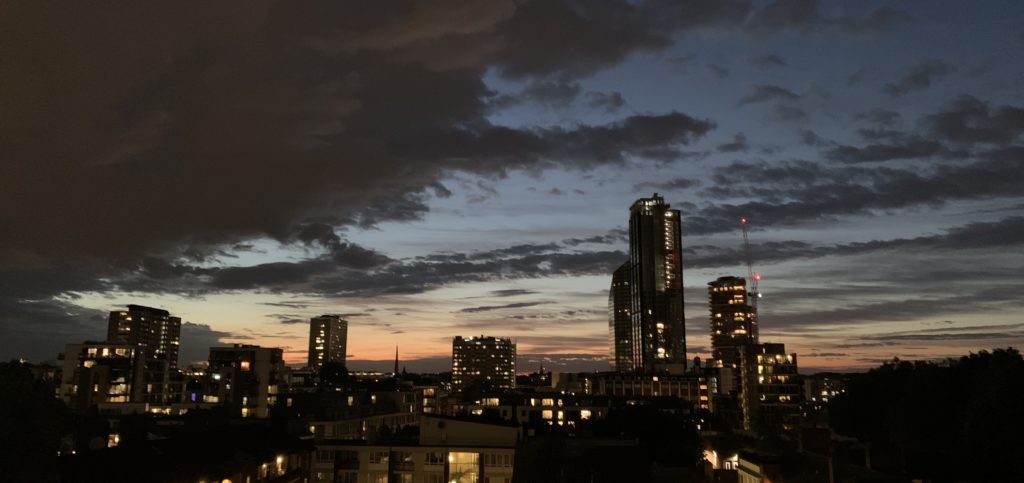I think I’ll miss the bells the most.
We had a Catholic Church within earshot of our apartment in Luxembourg (to be fair, it’s a small country, and there were lots of churches). Over our time there the sound of church bells became a welcome accompaniment to our Sunday brunch. I didn’t realize how much I missed the sound of bells with coffee and breakfast until we moved in here and we could hear the bells at St. Paul’s.
Or, maybe, what I’ll miss most will be the view. London is a pretty flat city. The City has a good cluster of tall towers, and they certainly dot the rest of the city landscape, but you don’t need to get very high to get great views. Our apartment on the 5th and 6th floors (that’s the 6th and 7th, if you start from “1” instead of “ground”) has fantastic views. Off the “back” side is St. Paul’s, the tip of the Shard and Walkie Talkie, the Courts, and the London Eye. Off the “front” side are things less famous, but no less interesting. And the sky is never still, even when it’s grey.

I might realize what I most miss are the local restaurants. Trade – the best pastrami for my money I’ve had outside the north east US. Monohon where the shop and the ramen reminded me of one of the tiny places I wandered into in Tokyo. Mola, our weekend breakfast staple. The kebab shop on Old Street – nothing special, just tasty tasty calories – and I didn’t even have to say “avec sauce samouraï.” I’d say I’d miss the pubs, but to be honest I haven’t been into one in months – I barely remember what they’re like. And sadly they’re often “much of a muchness,” so I imagine wherever we end up, there will be more.
In the end, it might end up being that I most miss living in easy carry distance to a whopping great Waitrose in the middle of the city. Living here you can easily understand why Brits – and Londoners in particular – were so far ahead of the US in embracing online grocery shopping and delivery. Most people don’t have a “big” grocery store near them – and why would you carry your shopping home in your hand, or on your shoulder, when someone will courier it to your door?
I know for sure I’ll miss our neighbors, who we got to know a bit before the pandemic and have stayed in touch with during. They’re smart, interesting, lovely people who have been a pleasure to spend time with.
It really doesn’t matter what I’ll miss most. I’ll miss all that. And more. And things I haven’t even realized I had noticed.
We looked at some flats today – one of them we both liked and will make an offer on. That made it real for me.
We’re actually going to have to move out of our apartment and not return because building management essentially can’t fix the roof.
The primary job of a building is to keep the outside out, and the inside in – and this (part of) this one is no longer fit for purpose.
It’s raining in my bedrooms, there are water stains creeping down walls…
And yet… I’ll miss it.
